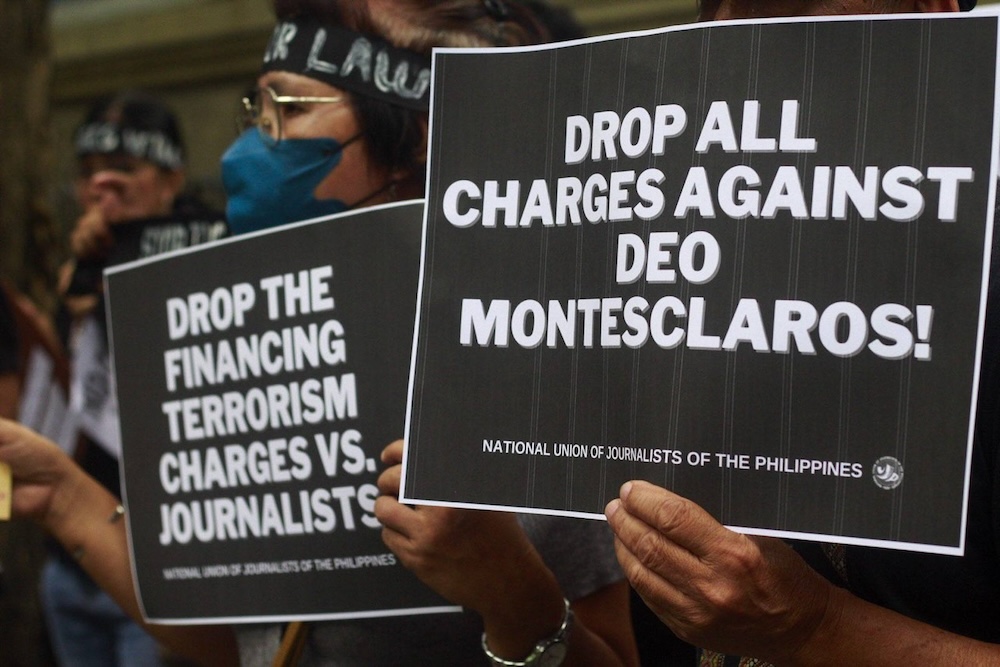Deo Montesclaros is the second journalist in the Philippines to be implicated under the country’s anti-terrorism laws.
This statement was originally published on cmfr-phil.org on 4 February 2025.
On January 10, the Office of the Provincial Prosecutor in Cagayan issued a subpoena against activists and multimedia reporter Deo Montesclaros due to alleged terrorism charges filed by the Criminal Investigation and Detection Group (CIDG) in Cagayan region.
The subpoena requires Montesclaros and several activists to submit counter-affidavits in response to allegations against them. These allegations stemmed from a December 23, 2024 letter from the CIDG, Regional Field Unit 2 in Cagayan Valley, which accused them of gathering supplies for the New People’s Army in 2018.
Montesclaros was a former correspondent of Northern Dispatch in 2017. Since 2021, he has worked for Pinoy Weekly, contributing long-form pieces and photographs. He is also currently a contributing photographer for Germany-based photo agencies IMAGO Images and Alto Press.
Apart from the Montesclaros, the accused included are Isabelo Adviento, Cita Managuelod, Karapatan human rights worker Jackie Valencia, and Makabayan-Cagayan Valley coordinator Agnes Mesina.
Montesclaros had previously been red-tagged by the National Task Force to End Local Communist Armed Conflict (NTF-ELCAC) in a senate hearing in 2020. He was accused of being a member of the Communist Party of the Philippines and the New People’s Army for his reporting on issues such as farmers’ rights violations and environmental concerns in the Cagayan Valley.
Montesclaros is the second journalist in the Philippines to be implicated under the country’s anti-terrorism laws. The first was Frenchie Mae Cumpio, a journalist who has been detained since February 2020, following similar accusations of terrorism financing.
On January 29, several media groups – AlterMidya, the Photojournalists’ Center of the Philippines, the National Union of Journalists of the Philippines, and the Filipino Freelance Journalists’ Guild – condemned the charges and expressed their support for the photojournalist. All groups pointed to the state’s relentless red-tagging that targeted even journalists like Montesclaros who only provided critical journalistic work covering issues related to human rights, land reform, and the environment.
In their separate statements, the media groups, including Pinoy Weekly, called for the immediate withdrawal or dismissal of the charges, which is part of a broader effort to suppress independent journalism and critical reporting.
This latest development raises serious concerns about the erosion of press freedom in the Philippines and the increasing use of legal tools to silence independent voices.
It underscores a disturbing trend in the Philippines, where journalists, especially community journalists like Montesclaros, are increasingly being targeted by the state. As the second journalist to be implicated under anti-terrorism laws, Montesclaros’ case serves as a stark reminder of the dangers facing media workers in a climate of red-tagging and government repression.
